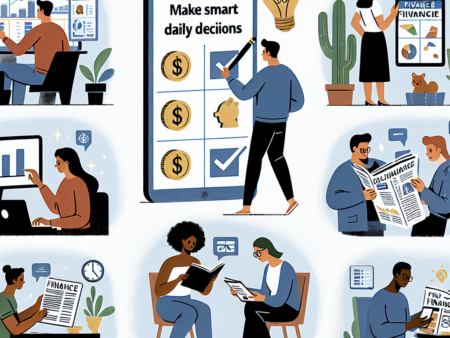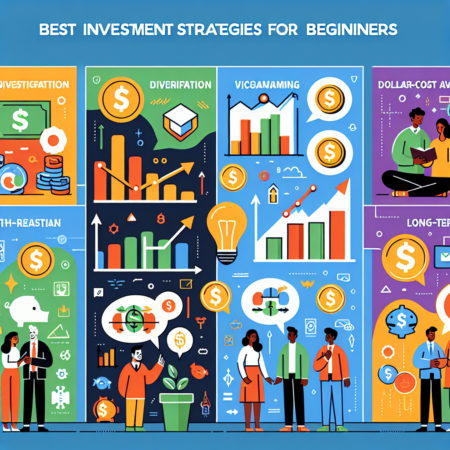Master Your Finances: Essential Personal Finance Tips for 2024
Managing your personal finances effectively is crucial for achieving financial freedom and securing your future. Whether you’re just starting out or looking to refine your financial strategies, implementing the right personal finance tips can make a significant difference. In this comprehensive guide, we’ll explore actionable insights, practical examples, and proven strategies to help you take control of your financial destiny.
1. Create a Realistic Budget
One of the foundational steps in personal finance is creating a budget that reflects your income and expenses. A realistic budget helps you track where your money is going and identifies areas where you can cut back.
Steps to Create an Effective Budget:
- Assess Your Income: Calculate your total monthly income from all sources.
- Track Your Expenses: List all your monthly expenses, including fixed and variable costs.
- Set Spending Limits: Allocate specific amounts to different categories to ensure you stay within your means.
- Monitor and Adjust: Regularly review your budget and make necessary adjustments based on your spending habits.
2. Build an Emergency Fund
Unexpected expenses can derail your financial plans if you’re not prepared. An emergency fund acts as a financial safety net, providing you with the means to handle unforeseen circumstances without going into debt.
How to Build an Emergency Fund:
- Set a Savings Goal: Aim to save at least three to six months’ worth of living expenses.
- Automate Savings: Set up automatic transfers to your savings account to ensure consistent contributions.
- Cut Unnecessary Expenses: Redirect the money saved from eliminating non-essential spending towards your emergency fund.
3. Reduce and Manage Debt
Debt can be a significant obstacle to achieving financial stability. Effectively managing and reducing debt is essential for improving your financial health.
Strategies to Manage Debt:
- Pay More Than the Minimum: Paying more than the minimum payment can help you pay off debt faster and reduce interest costs.
- Debt Snowball Method: Focus on paying off the smallest debts first to build momentum.
- Consolidate Debts: Combining multiple debts into a single loan with a lower interest rate can simplify payments and reduce costs.
4. Invest for the Future
Investing is a powerful tool for growing your wealth over time. By allocating your money into various investment vehicles, you can take advantage of compound interest and market growth.
Key Investment Options:
- Stocks: Investing in individual companies can offer high returns but comes with higher risk.
- Bonds: Bonds are generally more stable and provide regular interest payments.
- Mutual Funds and ETFs: These offer diversified investment options managed by professionals.
- Real Estate: Investing in property can provide rental income and appreciation over time.
5. Plan for Retirement
Retirement planning ensures that you can maintain your desired lifestyle even after you stop working. Starting early and consistently contributing to retirement accounts can lead to substantial savings.
Effective Retirement Planning Tips:
- Start Early: The earlier you begin saving, the more time your money has to grow through compound interest.
- Maximize Employer Contributions: Take full advantage of any employer-matched retirement plans.
- Diversify Investments: Spread your investments across various asset classes to mitigate risk.
6. Enhance Your Financial Literacy
Improving your understanding of financial concepts empowers you to make informed decisions. Continuously educating yourself about personal finance can lead to better money management and wealth accumulation.
Ways to Improve Financial Literacy:
- Read Books and Articles: Consume reputable resources on personal finance topics.
- Attend Workshops and Seminars: Engage in educational events to learn from experts.
- Utilize Online Courses: Take advantage of online courses that offer structured learning paths.
7. Utilize Financial Tools and Resources
Leveraging financial tools can simplify money management and provide valuable insights into your financial health.
Recommended Financial Tools:
- Budgeting Apps: Tools like Mint or YNAB help you track income and expenses effortlessly.
- Investment Platforms: Platforms such as Vanguard or Fidelity offer a range of investment options.
- Credit Monitoring Services: Services like Credit Karma help you stay on top of your credit score and report.
8. Set Financial Goals
Having clear financial goals provides direction and motivates you to stay committed to your financial plan.
How to Set Effective Financial Goals:
- Be Specific: Clearly define what you want to achieve, such as saving for a home or paying off debt.
- Make Them Measurable: Assign a monetary value and timeline to each goal.
- Ensure They Are Achievable: Set realistic goals that align with your financial situation.
- Monitor Your Progress: Regularly review and adjust your goals as needed.
Conclusion
Mastering personal finance is a journey that requires dedication, education, and strategic planning. By implementing these essential personal finance tips, you can build a solid financial foundation, achieve your goals, and secure a prosperous future. Remember, the key to financial success lies in consistent effort and informed decision-making.
Frequently Asked Questions
- What is the first step in managing personal finances?
- The first step is to create a realistic budget that tracks your income and expenses, allowing you to understand where your money is going and identify areas for improvement.
- How much should I save for an emergency fund?
- It’s recommended to save at least three to six months’ worth of living expenses to cover unexpected financial emergencies.
- What are some effective strategies to pay off debt?
- Strategies include paying more than the minimum payment, using the debt snowball method, and consolidating debts to lower interest rates.
- Why is investing important for personal finance?
- Investing allows your money to grow over time through compound interest and market gains, helping you build wealth and achieve long-term financial goals.
- How can I improve my financial literacy?
- You can improve your financial literacy by reading books and articles, attending workshops and seminars, and taking online courses focused on personal finance topics.
Disclaimer
The information provided in this article is for informational purposes only and should not be construed as financial or investment advice. It is always recommended to conduct thorough research and consult with a professional advisor before making any investment decisions.


















